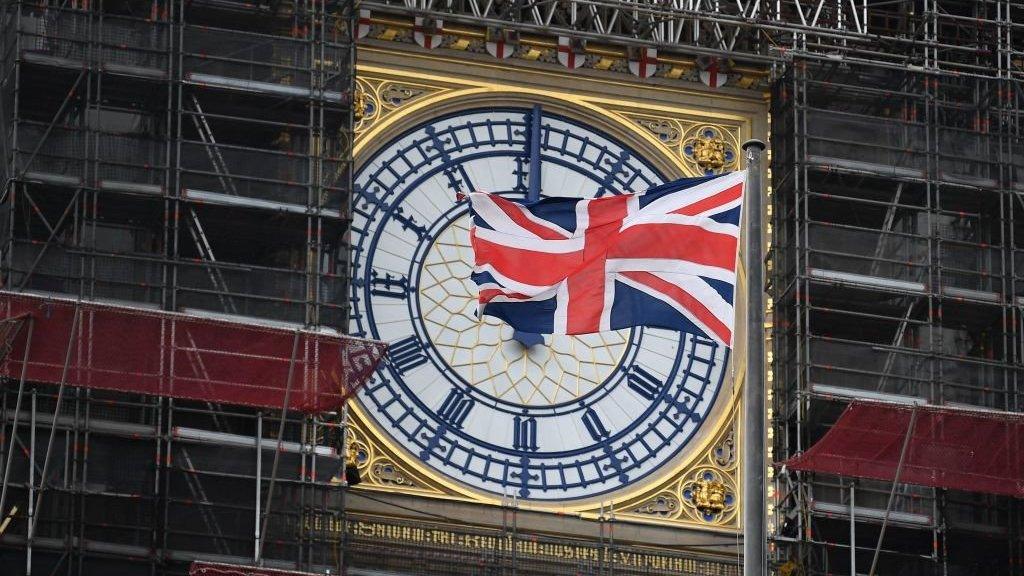Big Ben: New Year's Eve marks 100 years of live bongs on radio
- Published
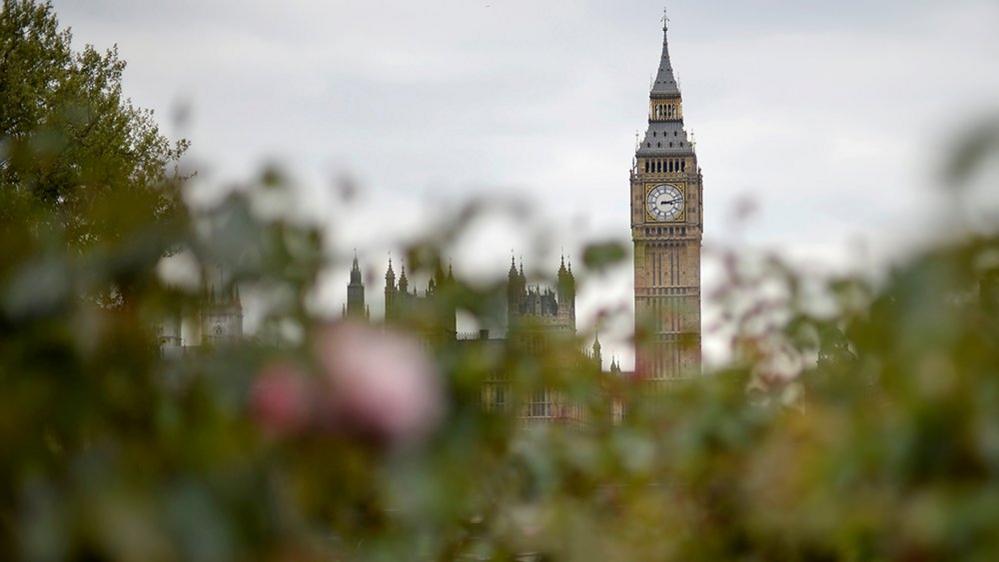
They are the UK's most famous chimes, and one of the most recognisable sounds around the world.
Exactly a century ago, Big Ben's bongs were broadcast live to the country for the first time, as part of a New Year's Eve radio programme on the BBC.
It began a tradition where the chimes were regularly heard on air, and they ultimately became a sound synonymous with the BBC.
New microphones were recently installed as part of a major restoration project.
It's a seamless operation, getting the sounds from Big Ben to the homes of BBC Radio 4 listeners.
But it hasn't always been so easy.
On 31 December 1923, BBC engineer AG Dryland had to climb onto a rooftop opposite the Houses of Parliament in order to record the chimes, as he wasn't allowed in the clock tower.
He took with him a microphone, and transmitted the sound live.
Big Ben had been chiming since 1859, but this was the first time that its distinctive "bong" was heard outside of its immediate vicinity in Westminster.
That very first broadcast picked up lots of traffic noise because it was recorded from a distance.
But it paved the way for regular broadcasting of the chimes, which continues to this day.
Hearing the bells has mattered hugely to generations of people over the years.
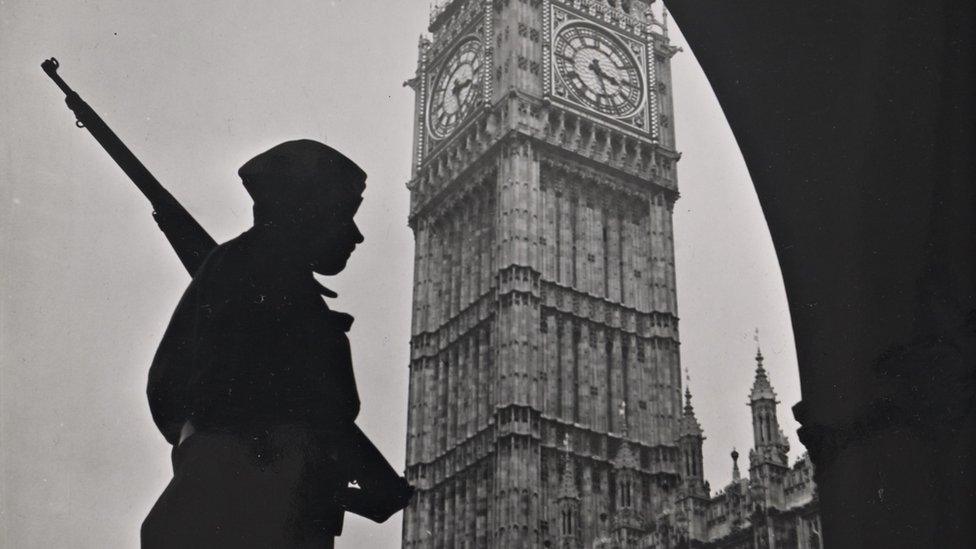
During the Second World War, Big Ben's chimes proved reassuring for many people
The sound of Big Ben has also heralded news of significant events, like the outbreak of World War Two.
"It has become a symbol of freedom," said Parliamentary Estates historian Mark Collins.
"The people who were hearing it during World War Two realised that there was one country which was still free. Thereafter, it was part of the meaning and the symbol of freedom."
The bongs are now an integral part of BBC Radio 4's daily news bulletins, with the sound heard twice a day, at the start of the 18:00 and midnight news bulletins.
On Sundays, the sounds are heard three times over the day.
The bells are also broadcast live on special occasions, such as Armistice Day, Christmas Day and New Year's Eve.
But there have been some notable exceptions, when the bells have been off air.
During World War Two, unbeknown to the public, the bongs were at times replaced by recorded ones for security reasons.
There have also been some freak events, such as in 1976, when the chiming mechanism broke due to metal fatigue, and had to be replaced by pips on Radio 4.
In 2017, the bongs were replaced by a recording again. That was due to a major restoration work taking place on the world-famous Elizabeth Tower, which houses the clock, Big Ben, and the four smaller quarter bells.
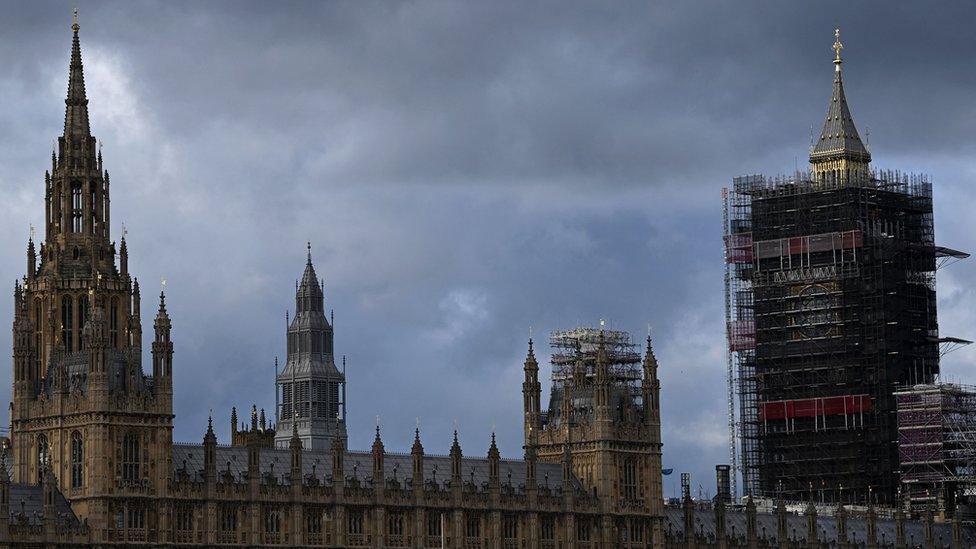
The Elizabeth Tower was shrouded in scaffolding for years as restoration work took place.
The work - the biggest repair and conservation project in the building's history - meant the exterior was covered in scaffolding and the bell itself was silenced.
Costs ballooned to £80m and the project took a year longer than expected.
"It was important in order that we could restore the building for future generations," says Charlotte Claughton, senior project leader at the House of Commons.
"There was stonework crumbling, also the great clock hadn't had a major overhaul in over 30 years at that point."
Ms Claughton said the infrastructure was updated during the works, including bringing in new lighting and microphones.
The work has now been completed, and in November, live bongs once again returned to Radio 4's news bulletins.
Ahead of New Year's Eve, extra microphones are brought in to help broadcast the countdown at midnight.
And with people across the country waiting for the sound of 12 chimes signalling the start of 2024, it's a big day for Big Ben's clock mechanics like Andrew Strangeway,
"We'll be here on the day, making sure the clock is running precisely to time," Mr Strangeway said.
"We'll be taking time checks throughout the day and making small adjustments to the pendulum, just to make sure that midnight happens exactly when everyone is expecting it to."
For more on the 100 year anniversary of Big Ben's bongs on the radio, go to History of the BBC and BBC Oral History Collection, external.
And you can hear a special programme with the Radio 4 continuity announcers - 'But First, This"- on BBC Radio 4 from 23:00 GMT on 31 December.
Related topics
- Published19 May 2023
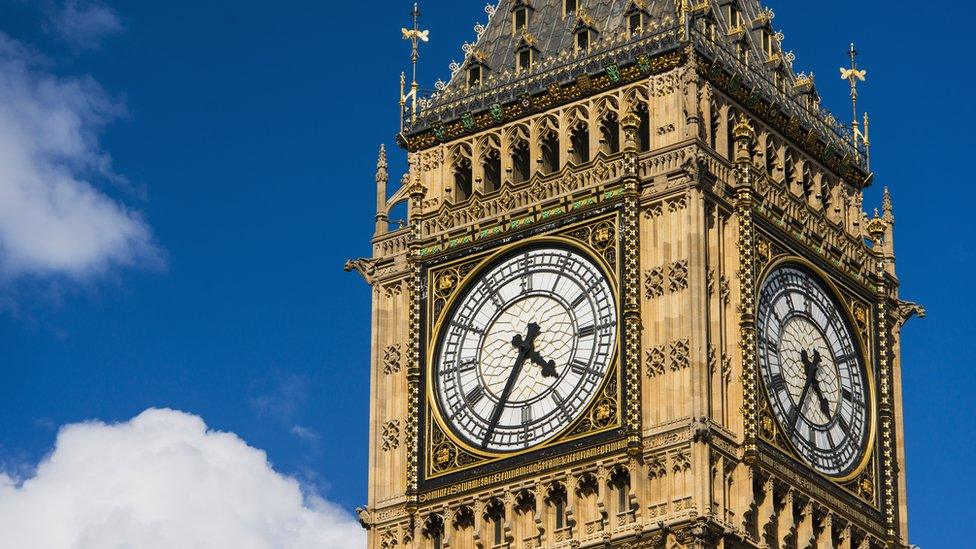
- Published16 November 2021
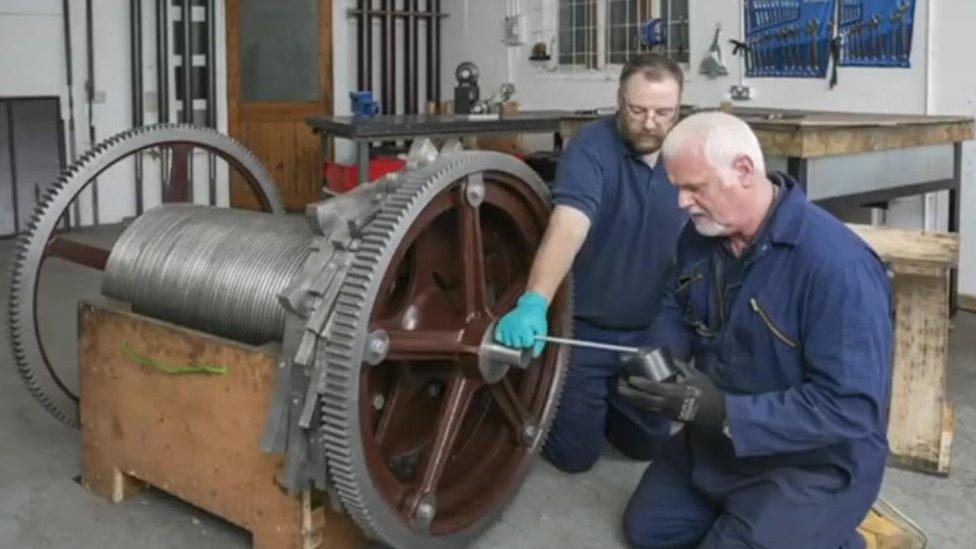
- Published27 April 2021
